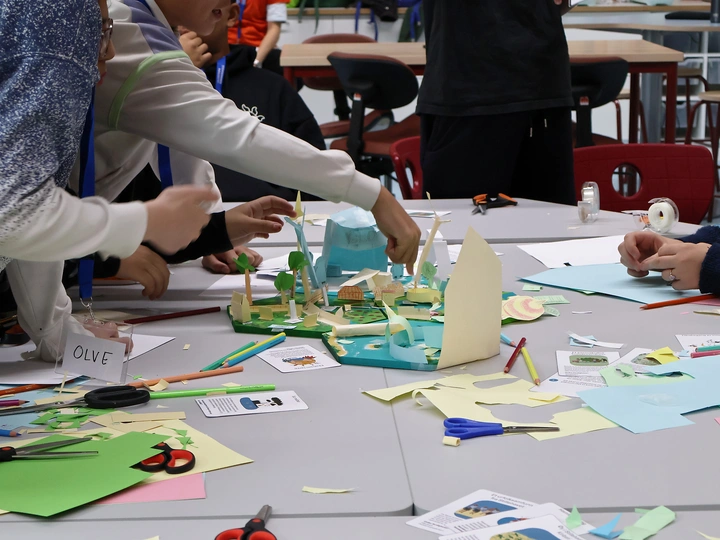Bygg Fremtiden

Rikke Winther
ACT! is a franco-norwegian oslo-based studio of architecture with a background in climate activism that focuses on building only the necessary, designing with care, and taking action in any way we can. Armelle Breuil established ACT! in Oslo in 2020, later joined by Rikke Winther in 2022.
ACT! grew from Armelle’s engagement as a climate activist. Active with Extinction Rebellion and then involved in founding Architects Climate Action Network Norway, she now is the international coordinator - through the ACAN UK branch. Armelle is also part of JAM Collective, exploring architecture, artivism, design, and self-publishing. With JAM, she developed "Step by Step," empowering kids to build playgrounds from reused materials in libraries.
Rikke is engaged in the permaculture movement in Norway, where she holds a teaching certificate, and uses a methodology of circular and regenerative thinking in her practice.
Rikke is also a member of ACAN Norge.
ACT! believes addressing the ecological crisis is urgent and must be coupled with social justice. We propose positive ways of building and living in response to the emergency, focusing on small and large-scale architectures, material research, self-building, and seeking applied solutions for resource depletion and ecosystem fragility.
Our pre-nomination for Oslo’s city architecture prize with Bademaschinen, a sauna built with reused material, and the Høyåsen permaculture project reflect our dedication to explore bio-based materials, reuse and alternative ways of living. Additionally, “Bygg Fremtiden,” selected for the national education program DKS, communicates the importance for us of transmitting our refusal of defeatism and the importance of drawing resilient architectures. We are both taking the permaculture diploma and engaging in a self-initiated research called “Vernacular Revival”, to test bio-materials techniques, and gathering experts in Norway to revive techniques that are no longer in use as they used to be.
Bygg Fremtiden aims to educate youth about human-made climate change’s impact on our environment and society. Recognizing the disproportionate effects of the ecological crisis, especially on vulnerable communities, we sought a creative approach. Amidst COVID, the idea evolved into a board game, which we developed in 2022 as part of the DKS-Lab, aimed at developing projects for Den Kulturelle Skolesekken, a Norwegian program providing schoolchildren with cultural experiences.
The board game simulates real-world scenarios, teaching sustainable urban development and biodiversity conservation, integrating ecological, architectural, and ethical learning. It addresses the urgent need for the construction sector to transition from significant contributors to CO2 emissions and biodiversity loss to becoming a leader in ecological stewardship and developing adaptation strategies.
Through school visits, we present our work as architects and climate activists. Kids then engage in hands-on activities, use creative problem-solving to build basic needs structures amidst simulated global warming challenges. The plots they receive represent locations worldwide, hinting at the varied impacts of climate change. By connecting all the plots through waterways, students see that solutions in one area may create problems elsewhere, emphasizing the importance of collaboration.
After 30 workshops, we see that the game has heightened students' awareness of their environmental impact and sparked discussions on sustainable practices. By raising awareness and encouraging active participation, we empower youth to combat ecological collapse and the climate crisis. We are now developing a pop-up book to accompany the game, allowing students to delve deeper into environmental issues, their impacts on our lives, and the solutions being developed — from broader concepts like degrowth to topics such as rehabilitation, maintenance, and the use of bio-based materials and bioclimatism